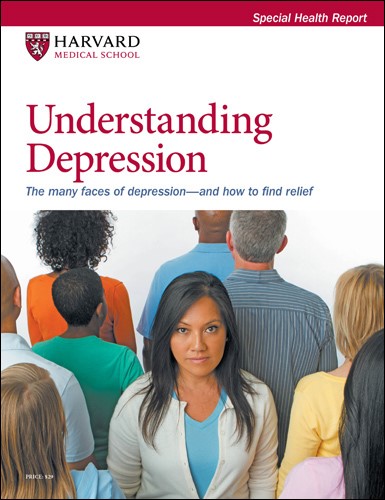Harvard Health Blog
What should you do during a psychiatric medication shortage?

You have finally found a medication to treat your depression that your body tolerates well. It has taken your psychiatrist months to find the optimal dose (after two failed medication trials). The COVID-19 pandemic hit, but in spite of your new daily stressors, you seem to be doing relatively well. That is, until you hear that your antidepressant medication is now in short supply. What can you do?
Mental health treatment during COVID-19
With the increased stress of the COVID-19 pandemic, prescriptions for medications to treat mental illnesses have increased more than 20% between February and March 2020. Sertraline, or Zoloft, one of the most commonly prescribed antidepressants in the United States, is now on the list of drugs in shortage. This will affect many people living with mental illness, as Zoloft treats depression, in addition to obsessive-compulsive disorder, post-traumatic stress disorder, panic disorder, social anxiety disorder, and premenstrual dysphoric disorder. It is commonly recommended as the preferred medication for women with these issues who are pregnant or breastfeeding.
Questions to ask your clinician
As distressing as a drug shortage may be, there is no need to panic. It does make sense, however, to discuss options with your prescribing clinician as soon as possible. Although the FDA indicates that the Zoloft shortage may last for 60 days, it is unclear whether the medication will be easily available after that time.
Knowing the nature of the drug shortage can help with shared decision-making. In the case of Zoloft, higher-dose tablets are in limited stock, but lower-dose tablets are currently still available. Your doctor may suggest temporarily taking a few of the lower-dose tablets to achieve your correct dosage. You can also ask about tapering off or switching medications, which may become options if the shortage persists.
The cost of medications
Longer-term drug shortages may require a change in medication treatment. This could be secondary to cost, as insurers may not be willing to approve certain medication dosages. When medication cost is the primary issue, your doctor can often appeal to your insurance. Changing insurance policies is another consideration. Doctors may also have samples of your medication, which may be a temporary solution. In some states, you may also be eligible for a prescription discount card.
Switching and tapering
If you are ultimately unable to continue your medication, you may make the decision, together with your prescribing clinician, to discontinue or switch medications. You should not ration medications!
It is important to note that decreasing the dose of your medication can lead to both physical and psychological withdrawal symptoms. A gradual taper is usually preferred when possible, which may take weeks or even months, depending on the medication, the length of time you have taken it, and the dose.
People vary in their response to tapering off of medications: some people do not notice any difference at all, whereas others may experience severe and distressing symptoms (in spite of a slow taper) that may persist for a long time. Gradually starting a related medication at the same time (called cross-tapering) may sometimes alleviate these withdrawal symptoms.
The take-home message
In the case of drug shortages, do not panic, but do contact your prescribing clinician to come up with a plan as soon as possible. Your options may include keeping the same dose by using lower-dose tablets, changing the dose, switching medications, or considering nonmedication options.
About the Author

Stephanie Collier, MD, MPH, Contributor; Editorial Advisory Board Member, Harvard Health Publishing
Disclaimer:
As a service to our readers, Harvard Health Publishing provides access to our library of archived content. Please note the date of last review or update on all articles.
No content on this site, regardless of date, should ever be used as a substitute for direct medical advice from your doctor or other qualified clinician.
















